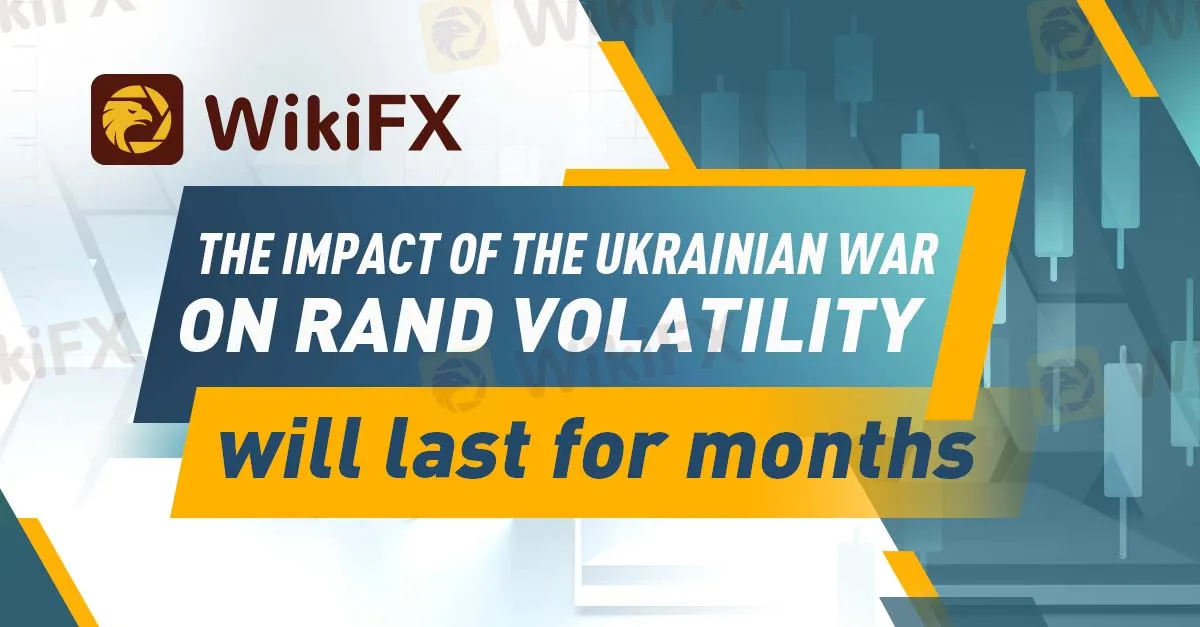Abstract:According to experts, the ongoing conflict in Ukraine will have a significant influence on the volatility of the rand in the coming months due to both military advancements and economic sanctions.
Three potential outcomes were identified in PwC's South Africa Economic Outlook Updated Macro Scenarios for 2022-2023, which was published on Thursday.

According to experts, the ongoing conflict in Ukraine will have a significant influence on the volatility of the rand in the coming months due to both military advancements and economic sanctions.
Three potential outcomes were identified in PwC's South Africa Economic Outlook Updated Macro Scenarios for 2022-2023, which was published on Thursday.
The rand appreciated during the first quarter of 2022, rising from R16.00/$ at the beginning of the year to R14.40/$ at the end of March, according to the study. The rand was supported by a number of reasons, including less travel restrictions and looser lockdown regulations, a positive view for world economic development prior to Russia's invasion of Ukraine, and increased commodity prices as a result of the invasion's impact on supply chains.
During the second quarter, the rand had poorer trading, at times strengthening to above R16.00/$ in May and June. Risk-off attitude brought on by the aftermath of the Ukraine War, a significant increase in US interest rates favoring the dollar, and domestic economic difficulties like power shedding and floods in KwaZulu-Natal all put pressure on the rand.
The consequences of Russia's invasion of Ukraine are the main international factor influencing the current state of the world's financial markets. The two nations account for 70% of the world's sunflower exports, a third of the exports of potassium fertilizer, a quarter of the exports of wheat, and 12% of the exports of crude oil, according to the PwC analysis.
A fifth of the world's very rich chernozem (black) soil is found in Ukraine, which also exports enough food each year to feed 400 million people.
It is hardly unexpected that commodity prices have risen recently. The S&P GSCI Commodity Index, which includes 24 commodities from the energy, industrial metals, agricultural, livestock, and precious metals sectors, has increased by 65 percent in rand terms over the past 12 months. The prospect for the disruption in Central and Eastern Europe is therefore crucial to the outlook for the rand and financial markets, according to the experts.
The nations of the European Union (EU) and North Atlantic Treaty Organization (Nato) are not entangled in the conflict under PwC's base case scenario (which has a 50% likelihood). However, they continue to give Ukraine covert military help in the shape of information, defensive arms and ammunition, and other kinds of support. No more substantial measures are implemented, and the current sanctions against Russia are maintained. From a military standpoint, the Russian military advance virtually slows, and a potential stalemate might result in a protracted struggle.
The rand is predicted to average R15.50 to the dollar this year and R16.05 to the dollar in 2023 under this scenario, according to the analysts.
The forecast for EU and NATO engagement is the same in PwC's negative scenario, which has a 30% likelihood and is the second most likely scenario. However, based on the existing circumstances in the east of Ukraine, the Russian military offensive is still going strong. As a result, all of Russia's banks are disconnected from the SWIFT global payments messaging network and the nation is expelled from the World Trade Organization (WTO). The majority of the Russian natural gas that was being imported by the US and EU is stopped, and part of this demand is met by supplies from Saudi Arabia, the US, Qatar, and Azerbaijan.
In general, the situation has gotten worse since the present and looks to disrupt the world's commodities markets more severely and for a longer time. The price of oil, which at one point in early June reached $130 a barrel, might rise to $150. According to this scenario and its effects on the world's financial markets, we anticipate the rand to average R15.97 per dollar this year and R16.69 per dollar in 2023, according to PwC.
With a 20% chance, PwC's most optimistic scenario envisions a diplomatic resolution that greatly lessens the armed conflict in Ukraine and permits the resume of a sizable portion of the nation's soft commodity exports.
The analysts predicted that, given this scenario's favorable effects on international markets, the rand would average R15.04 per dollar this year and R15.41 per dollar in 2023.










